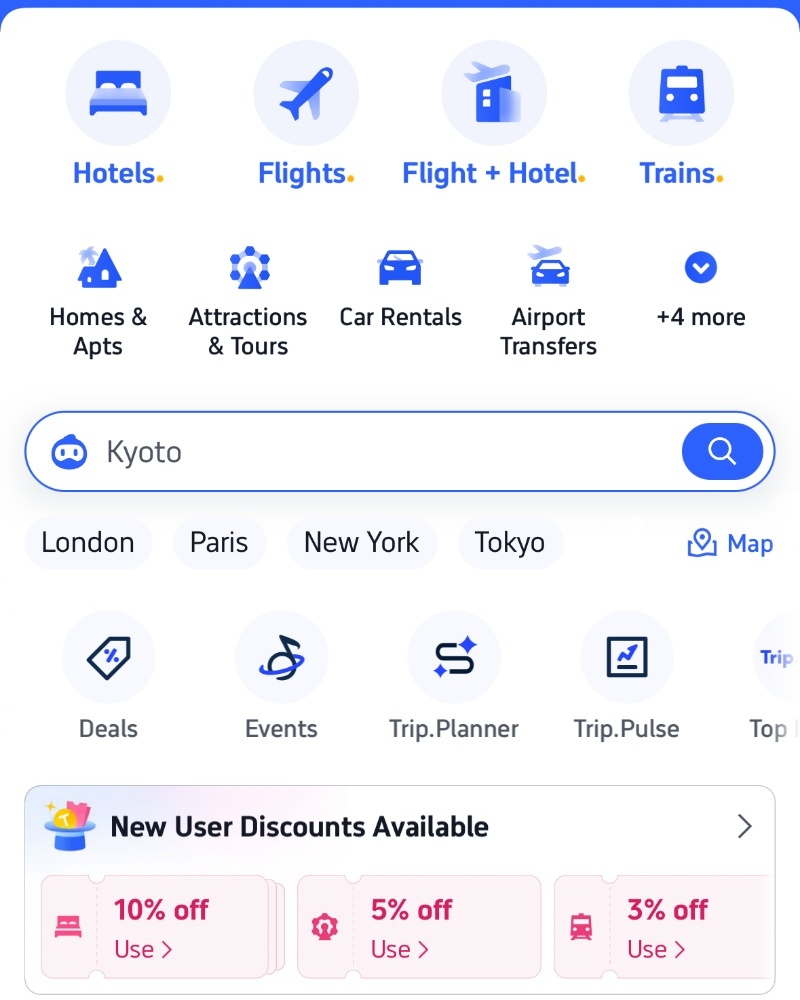So here’s the thing — YouTube just isn’t a thing in China. And if you’re searching for a real Chinese YouTube alternative, you’ll quickly find that it’s not just about copying a global platform. What you get instead is a whole different vibe. Take Bilibili, for example—it’s not a clone; it’s its own chaotic, creative, deeply niche ecosystem. Bullet comments fly like you’re mid-conversation. You’ll stumble on anime edits more intense than Reddit deep-dives, or streamers casually chatting like you’ve walked into their room uninvited. It’s raw, sometimes messy, often brilliant—and somehow, that makes it feel more human.
Why YouTube Is Blocked in China (And What Replaced It)
YouTube isn’t just slow in China — it’s completely unreachable without a VPN. Thanks to the Great Firewall, platforms like YouTube, Facebook, and even Reddit are blocked. That’s not new. What’s interesting is what came next.
Instead of relying on clones, Chinese users turned to platforms that evolved in their own direction. Bilibili isn’t trying to “replace” YouTube — it became something different altogether. It started as an anime hub and morphed into a fandom-powered universe. Meanwhile, services like iQIYI and Tencent Video cater to a more Netflix-style crowd with big-budget dramas and films. But ask anyone under 25 what they actually use daily? Bilibili wins hands down — not just for the content, but for the way people interact with it.
iQIYI, Youku, Tencent Video: Great for Binge-Watching, Not for Belonging
Let’s start with iQIYI. People often call it the “Netflix of China”—and honestly, that’s not far off. Its UI feels sleek, its originals are impressive (The Knockout, Light the Night, etc.), and the app runs smooth on almost any device. You’ll get loads of drama, some well-produced films, and variety shows that dominate local trends. But here’s the thing: you watch alone. There’s no live comment culture, no playful interaction mid-episode—no “danmu” zipping across the screen. For casual bingeing, it works. But if you’re looking to connect or react in real time, this one’s a bit... sterile.
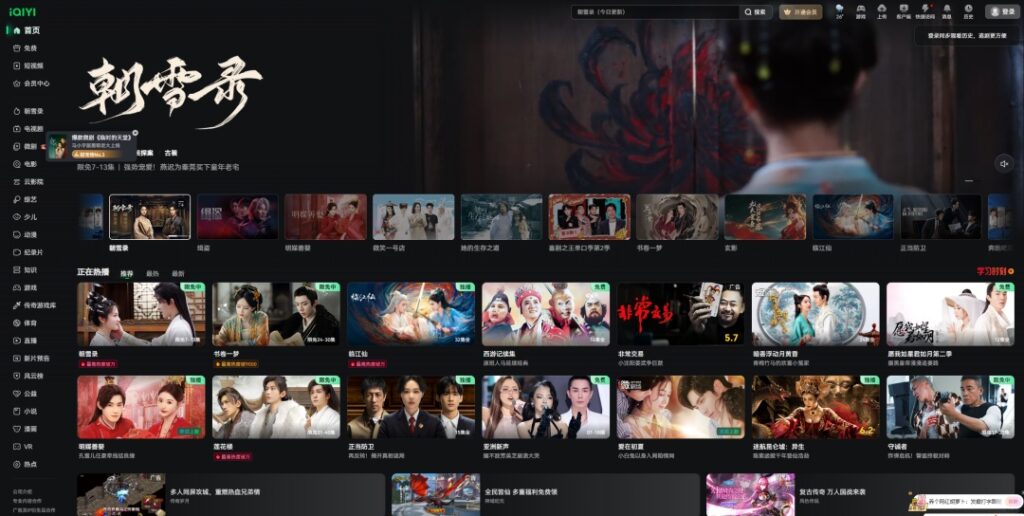
iQIYI
Youku’s a different beast. Once known as “China’s YouTube,” it’s been around forever—acquired by Alibaba back in 2015. You’ll find classic content here: throwback sitcoms, web dramas, some offbeat reality shows. It even still hosts user-uploaded stuff, though it’s clearly faded behind studio-backed programming. But, yeah, that interface hasn’t aged well. The homepage feels crowded, search is almost unusable without Chinese titles, and half the time you land on a show that requires VIP payment after three episodes. Youku feels like it’s trying to be a little bit of everything, and ends up a bit messy for foreigners dropping in.
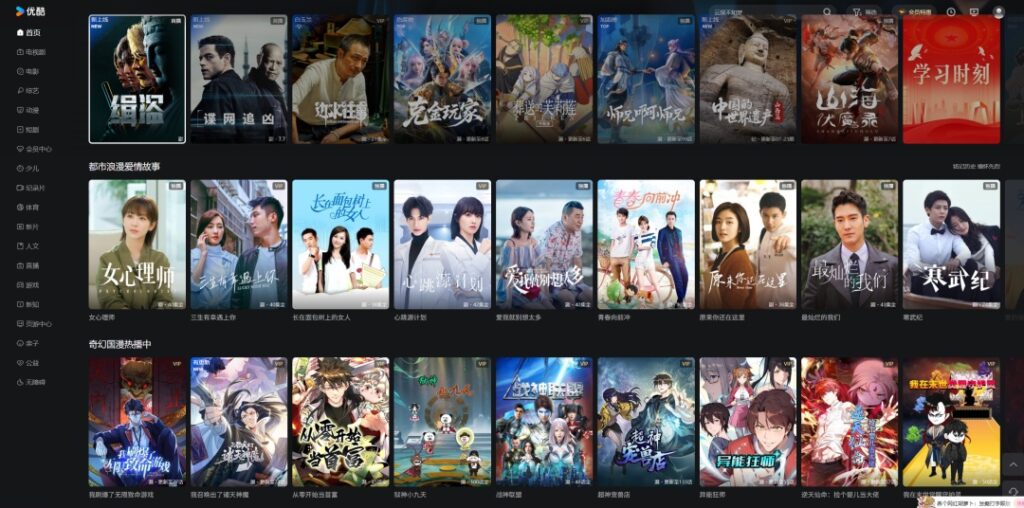
Youku
Then there’s Tencent Video—arguably the most “connected” one. It’s got huge backing (WeChat-level backing), which means the content is everywhere: K-dramas, C-variety, esports, even HBO titles. If you're inside the Tencent ecosystem, login is seamless, and sharing clips to WeChat is effortless. But outside of that? Registration gets fuzzy. No passport-friendly onboarding, card payments are hit-or-miss, and even VPNs won’t guarantee access to everything. Basically, it’s great for people already embedded in the system, but for outsiders... it’s hard to join the party.
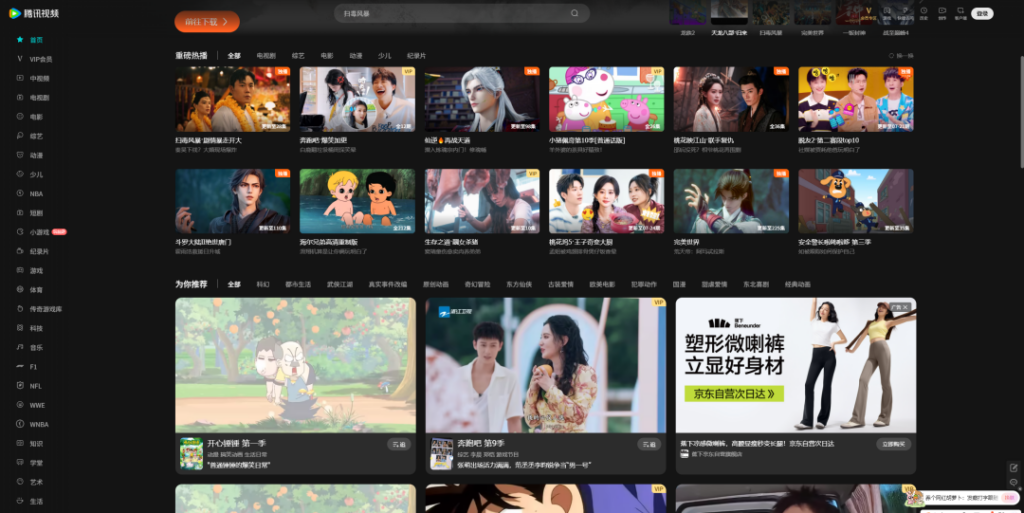
Tencent
Yes, all three platforms look sharp. Subtitles are polished, streams load fast, and content libraries are huge. But you’re a passive viewer. There’s no sense of walking into a fandom or chatting through a premiere. No in-jokes floating past you. No weird niche uploads you randomly stumble into. That’s why, even with shiny production, they feel more like broadcast networks than communities.
Bilibili: A Community-Driven YouTube Alternative That Foreigners Actually Use
The Bilibili app is chaotic in the best way. You’re watching a video, and suddenly text floods across the screen — these are danmu, or “bullet comments,” shot out by viewers in real-time. Sounds distracting? Maybe at first. But then it clicks — you’re watching with people, not just watching.
Originally an anime haven, Bilibili China has exploded into a platform where you can find everything from Harvard lectures (yes, really) to Shanghai street food tours and uncensored vlogs shot by international students. It’s curated by the users, not just algorithms. The vibe is half Reddit thread, half TikTok, with a pinch of 2009 YouTube community spirit.👉 Here’s a deeper look at what Bilibili is and why it’s China’s most beloved video platform in 2025 — especially if you're curious about how it grew out of otaku subcultures into something Gen Z swears by.
Foreigners like it not just for the content, but for the sense of being “in” something local. You’ll often stumble into hour-long explainers on Chinese slang, or watch a Chinese user try American candy for the first time. The Bilibili app now supports English UI (partially), and the signup is passport-based — no local phone number required.
And then there’s livestreaming. Bilibili’s streamers aren’t polished influencers — they’re anime artists, coders, gamers, even amateur chefs. It feels raw, weirdly authentic. That’s rare. There’s also a kind of “badge” culture — if you comment enough, like enough, your icon evolves. Little stuff, but it draws you in. For foreign content creators? It’s a harder platform to break into, but those who do build real audiences.
While Bilibili has built a tight-knit community around anime edits, fan culture, and niche commentary, Douyin plays a totally different game. If you’re more into short, fast-paced content and viral challenges, you’ll want to understand how Douyin works too. It’s not just “Chinese TikTok” — it’s got its own ecosystem, rules, and quirks. 👉 What Is Douyin? Your Guide to the Chinese TikTok in 2025
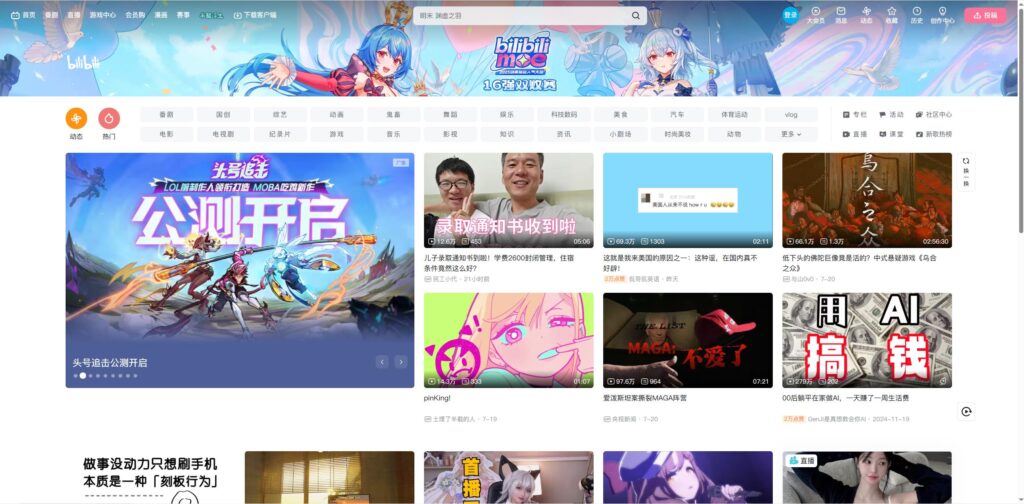
Bilibili homepage on the web
Pricing and Setup: How Much, How Hard?
| Feature | Bilibili | iQIYI | Youku | Tencent Video |
|---|---|---|---|---|
| Free Content Quality | ★★★★☆ (Few ads, clear categories) | ★★☆☆☆ (120s pre-roll ads + mid-rolls) | ★★★☆☆ (Frequent mid-rolls) | ★★☆☆☆ (Pop-up ads galore) |
| Paid Plan | ¥25–35/month (Premium Membership) | ¥30–40/month (Star Diamond VIP) | ¥25/month (Kuyun VIP) | ¥35/month (Super VIP) |
| English Support | Partial (anime subtitles/UI basics) | Minimal (machine-translated subs) | None | None |
| International Payments | ✅ Visa/Mastercard/JCB (passport) | ❌ Alipay/UnionPay only (needs Chinese phone) | ⚠️ Alipay + international cards (low success rate) | ❌ Fully restricted |
| Exclusive Content | ACG, educational, virtual idols | Movies/dramas/variety shows | Variety shows/dramas | Gaming/IP adaptations, HK dramas |
| Geo-Restrictions | Mainland IP only (VPN required) | Mainland IP only | Mainland IP + device binding | Strict geo-blocking |
| Student Discounts | 20% off (with academic verification) | None | Regional discounts | None |
| Multi-Device Sync | Phone/PC/TV/tablet | Phone/PC/TV | Phone/PC | Phone/PC/TV (requires Chinese Apple ID) |
- Bilibili is the only platform with a fully functional international payment pathway (passport + credit card)—ideal for casual anime fans abroad.
- For long-term use, pair with Clash for Windows (optimized mainland nodes for smoother streaming).
- Beware of "recharge agents": Some Taobao sellers may commit credit card fraud; stick to official channels.
- Regional locks apply even for paid users—some content (e.g., dramas) remains inaccessible outside mainland China.
Can You Access These Chinese Platforms from Abroad?
Short answer: Yes, but it’s complicated.
Bilibili for foreigners is surprisingly open. You can download the .apk version from the official site or APKPure if you’re on Android (Google Play doesn’t always show it). And if you’re using iOS, just switch your App Store region to mainland China — no VPN needed. Watching casual content like vlogs, tech unboxings, or food channels? No problem.
But once you get into copyright-protected stuff — anime, movies, paid shows — that’s when things may glitch. Your IP address can restrict playback, or certain episodes might appear “locked.” And yes, if you try to buy premium Bilibili streaming, some features might require a Chinese mobile ID.
As for iQIYI, Youku, and Tencent Video — their global apps exist, but with very different libraries. iQIYI International, for instance, focuses on Southeast Asia and doesn’t sync fully with the Chinese site. So while you can access “something,” it’s usually not what your Chinese friends are watching.
Frequently Asked Questions (FAQs)
Q: Can I use Bilibili in English from outside China?
Yes, but only partially. The interface of the Bilibili app and website has limited English, mostly around settings and profile areas. Video titles and comments are primarily in Chinese, although some creators do subtitle their content. If you're just browsing anime or tech channels, it's .still usable. Many foreign users rely on Google Translate extensions or watch Bilibili clips shared on Reddit. Just know—it’s not built with foreigners in mind, but it’s still very much accessible.
Q: Do I need a VPN to watch Chinese video platforms abroad?
For most platforms, not really. Bilibili, iQIYI, and Youku are accessible outside China without a VPN. But some premium or geo-locked content might return a playback error if your IP isn’t in mainland China. That’s when VPNs help—but once you go the VPN route, some apps behave differently. Bilibili might auto-switch to full Chinese mode and require phone verification. So yes, you can watch them—but expect some quirks if you're not using a Chinese SIM.
Q: Which platform is best for Chinese dramas with English subtitles?
iQIYI usually wins here. They invest heavily in licensing and international distribution, and many popular dramas have English subs—sometimes released at the same time as the original. Tencent Video is also strong, especially for fantasy or costume dramas. Just be careful—if you sign up outside China, you may get routed to the “international” versions of these sites, which have fewer shows. For the full library, people often use the Chinese app version with a local VPN.
Q: Can I upload videos to Bilibili as a foreigner?
Technically, yes—but it’s not plug-and-play like YouTube. You’ll need to register an account with passport ID, and if you want to unlock full creator features (like streaming or monetization), you’ll need real-name verification tied to a Chinese mobile number. Many international creators actually use agency accounts or collaborate with Chinese users. So while it’s possible, you may find the setup harder than expected.
Q: Are there risks in using Chinese video apps on my phone?
If you're downloading apps like Bilibili from official sources (like the App Store or their official site), it's generally safe. But don’t grab random .apk files from unknown mirrors—they might be modified. Also, Chinese apps tend to request more permissions (like access to phone status or contacts), so check your settings. You won’t get malware if you’re careful—but yes, privacy works a bit differently.
Q: Is there a Chinese version of YouTube that supports English creators?
Not exactly. Bilibili comes closest, but it’s still a Chinese-first platform. Platforms like Youku or iQIYI prioritize licensed or studio content. While anyone can technically create an account, the ecosystem isn’t geared toward English-speaking creators. You might build a niche following, but you won’t see the same creator tools, discovery features, or monetization support that YouTube offers globally.
Q: Which Chinese app has the most foreign users?
Among video platforms, Bilibili likely leads—especially among expats, language learners, and anime fans. It has a reputation for being more open and “chaotic fun” than Tencent Video or Youku, which feel more polished but less interactive. There’s even an unofficial Bilibili Reddit where people swap tips on accessing content. So if you're looking for community over convenience, Bilibili's your pick.
Q: Can I watch Western shows or movies on Chinese platforms?
You’d be surprised—yes. iQIYI and Tencent often license Hollywood blockbusters or UK dramas, though they may arrive later and with edited scenes. Some require a VIP subscription. Bilibili also curates niche foreign content, especially animation and Japanese shows. That said, availability changes fast. Licensing rules in China are strict, so a show might disappear overnight. Always keep a backup link or watchlist.

